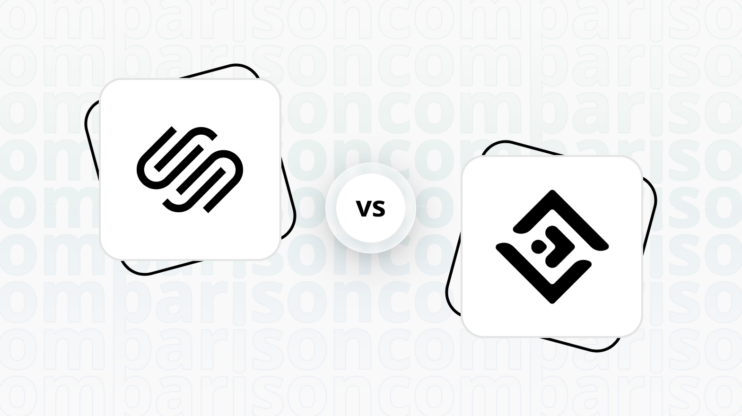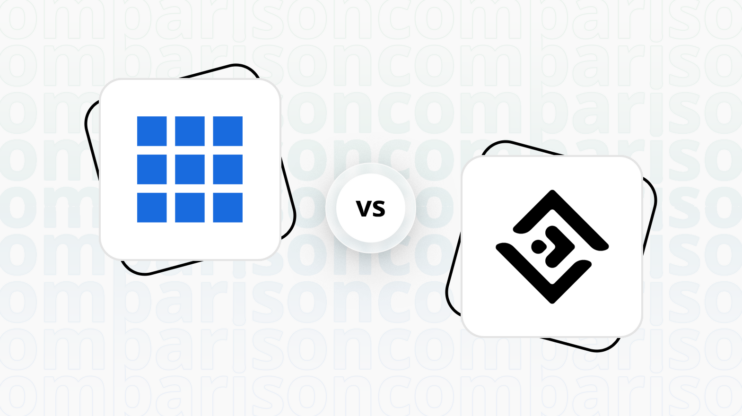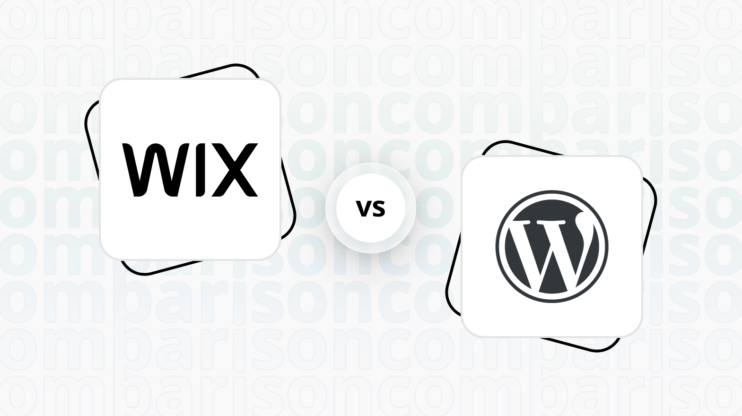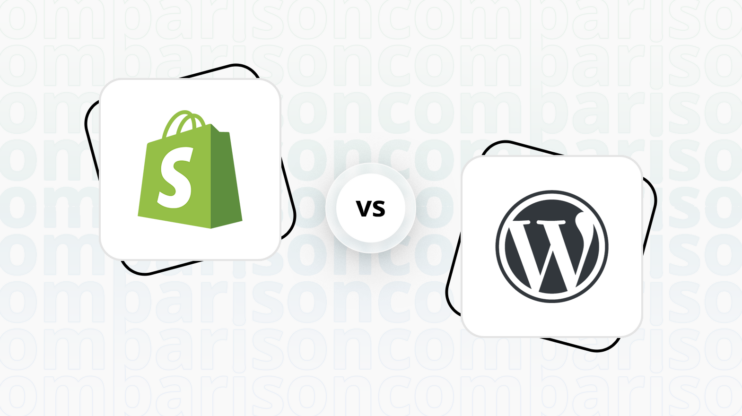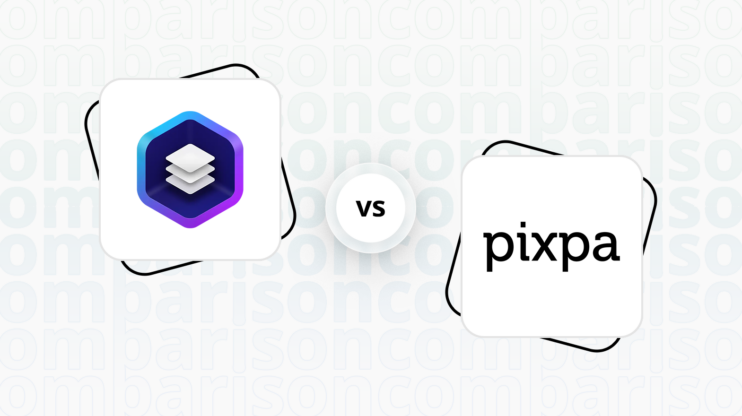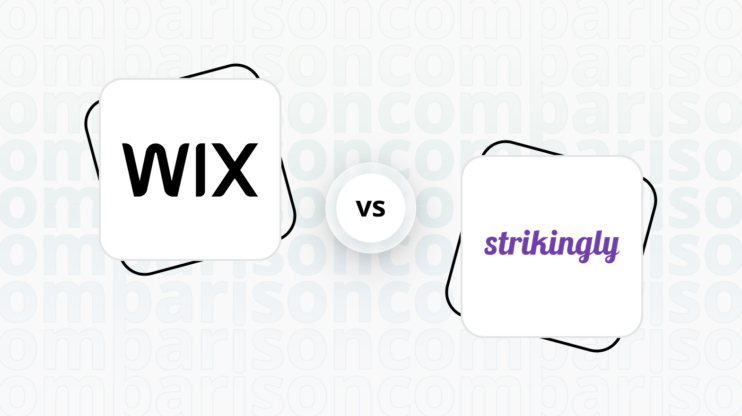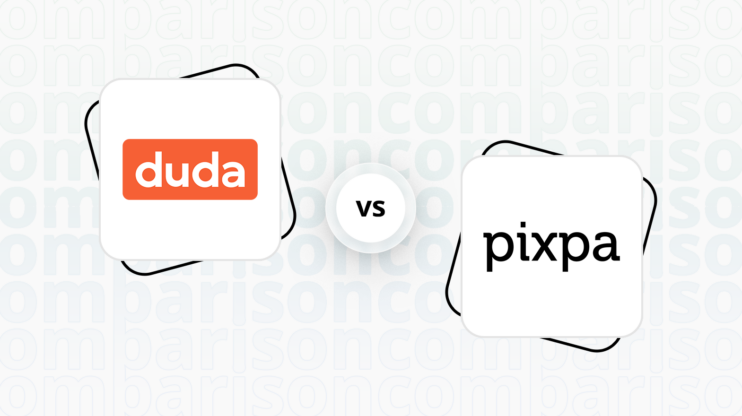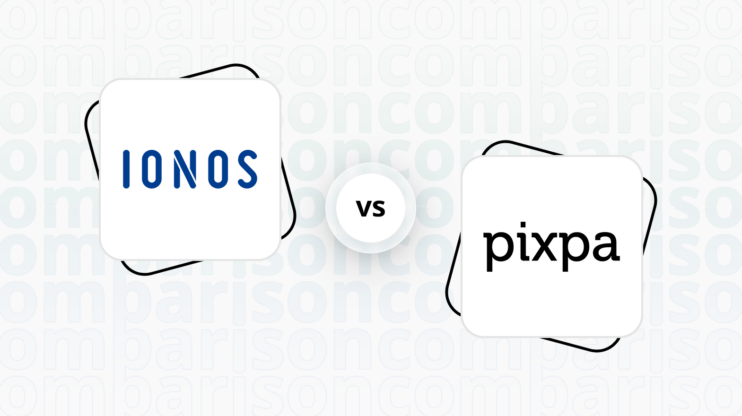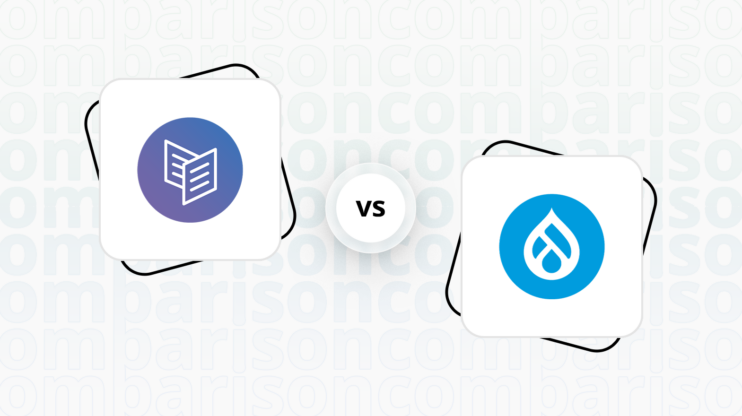Final verdict
Squarespace and BlueHost cater to different audiences with their unique strengths, making the choice between them dependent on the user’s specific needs.
-
Squarespace (Overall Grade: 7.9/10)
excels in design functionalities, ease of use, website editors, marketing features, customer support, security, and AI capabilities. It’s particularly suited for users looking for a comprehensive, user-friendly website creation experience with a focus on design and security. Squarespace’s all-in-one platform is ideal for small to medium-sized businesses, creatives, and anyone prioritizing aesthetics and functionality without the need for extensive technical knowledge. -
BlueHost (Overall Grade: 6.8/10)
stands out in hosting quality, plugins and integrations, and offers a versatile platform that integrates seamlessly with WordPress, providing access to a vast ecosystem of themes and plugins. It’s a strong choice for users who require robust hosting solutions and the flexibility to customize their site extensively through WordPress. BlueHost is well-suited for users ranging from beginners to advanced developers who value customization and control over their website’s functionality and performance.

|

|
|
|---|---|---|
|
Design functionalities & templates |
8.0 |
7.2 |
|
Ease of use |
8.3 |
8.2 |
|
Ecommerce |
8.2 |
6.8 |
|
Website Editors |
8.3 |
7.3 |
|
Product testing options |
7.4 |
6.2 |
|
Price |
8.4 |
7.2 |
|
Hosting quality |
7.6 |
8.0 |
|
Website speed optimization |
6.7 |
6.5 |
|
Plugins and integrations |
6.8 |
9.1 |
|
Marketing features |
8.1 |
7.3 |
|
Customer support |
7.8 |
7.6 |
|
Security |
8.8 |
8.3 |
|
AI capabilities |
7.5 |
1.5 |
|
User Management |
7.4 |
4.4 |
| Overall |
7.9 |
6.8 |
Best for ecommerce
 8.2
8.2
 6.8
6.8
Verdict
: Squarespace is better suited for users looking for an intuitive and comprehensive ecommerce solution, while BlueHost offers more customization and technical flexibility, albeit with a steeper learning curve.
-
Squarespace
: With a higher ecommerce score and a focus on user-friendly design, Squarespace is ideal for businesses seeking an all-in-one platform. It offers a variety of templates and built-in marketing tools, making it easier to set up and manage an online store. -
BlueHost
: Though it scores lower in ecommerce, BlueHost is a strong contender for those who need a more customizable solution. Its integration with WordPress allows access to a vast array of plugins and themes, catering to users with specific ecommerce needs and technical expertise.
Best for informational & business websites
 8.4
8.4
 7.5
7.5
Verdict
: Squarespace is the superior choice for informational and business websites, offering a more tailored experience for creating professional, visually appealing sites.
-
Squarespace
: With a score of 8.4, Squarespace shines for informational and business websites. Its focus on design, ease of use, and comprehensive learning resources make it ideal for users looking to create professional and aesthetically pleasing sites without extensive technical knowledge. -
BlueHost
: Scoring 7.5, BlueHost is a robust platform that excels in hosting and WordPress integration, making it a strong contender for those who prioritize versatility and access to a wide range of plugins. However, for purely informational and business-focused sites, it may not offer the same level of design sophistication and ease of use as Squarespace.
Detailed comparison
Design functionalities & templates
Design FunctionalitiesRepresents how well each platform allows for creative design and customization of websites.Score Components:
- Template Variety (30%): Range and quality of design templates.
- Customization (30%): Flexibility and options for design alterations.
- User Interface (20%): Ease and intuitiveness of the design process.
- Responsiveness (10%): Adaptability to different devices and screen sizes.
- Innovation (10%): Unique design features and tools.
 8.0
8.0
 7.2
7.2
🏆
Winner: Squarespace.
Squarespace offers a more comprehensive and user-friendly design experience, with a higher score of 8.0 compared to BlueHost’s 7.2.
Squarespace boasts an impressive variety of website templates, offering over 120 pre-designed options to choose from. These templates cater to a wide range of needs and industries, from creative portfolios and sleek online stores to professional business websites and personal blogs.


On the other hand, BlueHost’s WordPress website builder offers over 300 pre-installed templates and designs to cater to the diverse needs of its users, ensuring that there’s something for everyone, regardless of the niche or industry. However, BlueHost does not provide a link to its themes page and does not have a screenshot of its template page.
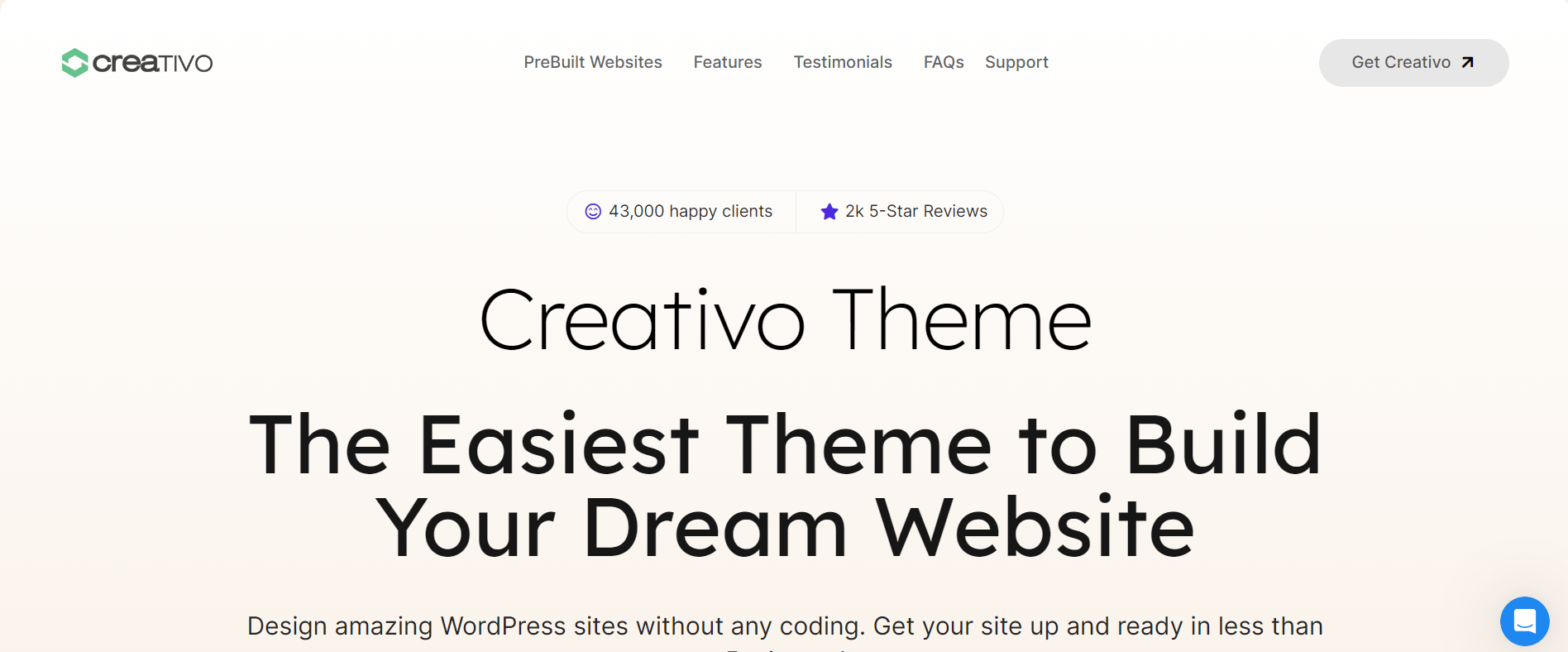
Get a head start on website creation with AI
Create a custom website tailored to your business needs 10X faster with 10Web AI Website Builder!
Ease of use
Ease of useReflects the platform’s overall user-friendliness.Score
Components:
- Learning curve (40%): Quickness and ease of getting started.
- Interface design (30%): Simplicity and intuitiveness of layout.
- User guidance (20%): Quality of tutorials and support.
- Flexibility (10%): Adaptability to various user skills.
 8.3
8.3
 8.2
8.2
🏆 Winner: Squarespace
. With a score of 8.3, Squarespace edges out BlueHost (8.2) in terms of ease of use. Both platforms offer user-friendly interfaces and drag-and-drop editors, but Squarespace’s high-quality learning resources and active user community give it the edge.
Learning Resources
🏆 Winner: Squarespace
. Both platforms offer extensive learning resources, but Squarespace’s resources are noted for their high quality and varied formats, including a comprehensive Help Center, clear video tutorials, live webinars, an informative blog, and an active community forum.
For ecommerce
EcommerceMeasures the platform’s effectiveness in supporting online business activities.Score Components:
- Ecommerce themes and templates (20%): Variety and design of templates.
- Product management (25%): Ease of managing and organizing products.
- Payment options (25%): Variety and convenience of payment methods.
- Ecommerce features (20%): Features for managing an ecommerce store.
- Integration (10%): Compatibility with external e-commerce tools and services.
 8.2
8.2
 6.8
6.8
Squarespace and BlueHost both offer ecommerce capabilities, but they cater to different needs and skill levels. Squarespace provides a more user-friendly and comprehensive ecommerce solution, making it a good choice for businesses that want to set up an online store quickly and easily. On the other hand, BlueHost’s ecommerce features are more robust and customizable, but they may require more technical knowledge and additional plugins.

|

|
|
|---|---|---|
|
Ecommerce themes and templates |
7.5 |
6.5 |
|
Product page customization |
7.0 |
7.0 |
|
Payment processing and commissions |
7.8 |
6.8 |
|
POS capabilities |
6.5 |
0.0 |
|
Payment gateways |
7.5 |
7.5 |
|
Product numbers |
6.8 |
6.0 |
|
Additional ecommerce features |
7.2 |
6.5 |
Squarespace ecommerce features:
- Intuitive interface
- Secure payment processing
- Built-in marketing tools
- SEO optimization
- Website analytics
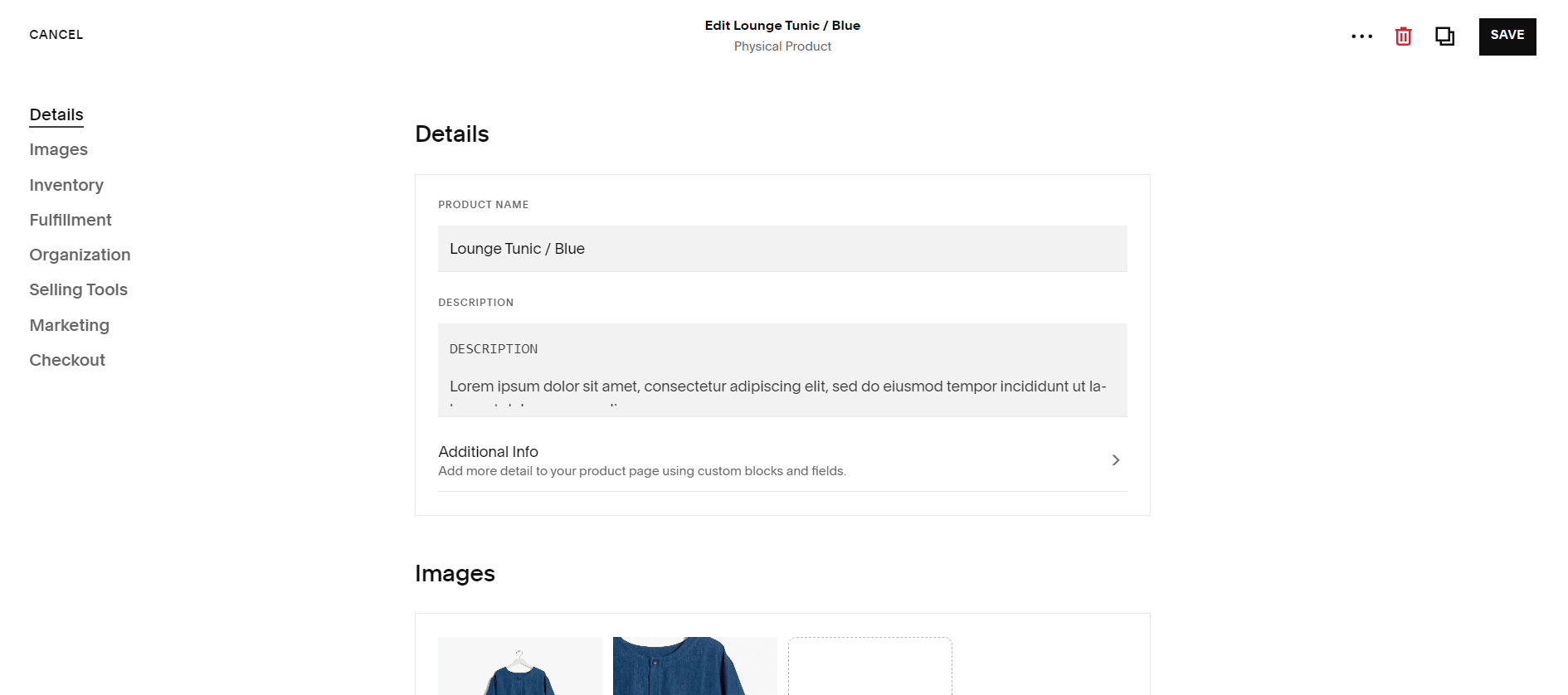
BlueHost ecommerce features:
- Product Listings
- Shopping Carts
- Secure Payment gateways
- Shipping Options and Tax Calculations
- Inventory Management
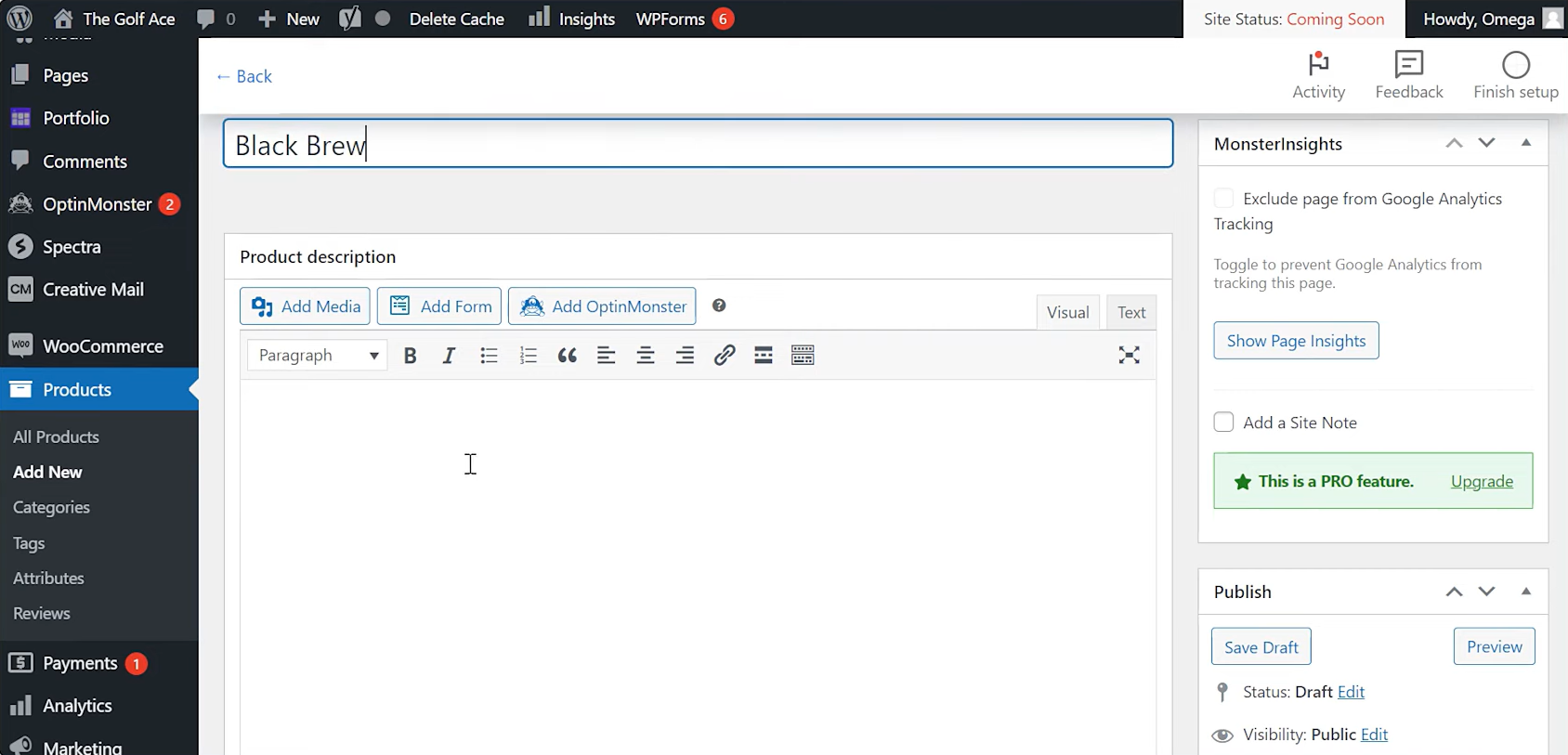
Ecommerce themes & templates
Squarespace provides a diverse selection of around 50 ecommerce templates, catering to various industries like fashion, beauty, home goods, and technology. These templates range from clean and minimalist to bold and colorful, accommodating different brand aesthetics and product types. Offering unique layout elements such as product sliders and featured collections, these templates enhance visual interest and engagement.
On the other hand, BlueHost’s website builder for eCommerce provides a selection of specific templates designed to streamline the creation of online stores. These templates are optimized for sales, featuring designs that accommodate product galleries, shopping carts, and checkout processes. However, the customization options might be limited compared to more specialized eCommerce platforms, potentially restricting how much users can tailor the design and functionality to their precise preferences.
Product page customization
Customizing Squarespace product pages offers options for layout, design, and interactive elements. Choose templates, customize colors, fonts, and content. Enhance engagement with features like customizable buttons, wishlists, comparisons, reviews, and related products. Advanced options include custom code injection and third-party app integrations. Limitations include fixed core page structure and the need for technical expertise. Free templates have fewer customization options than premium ones.
BlueHost’s website builder offers robust customization features for product pages, allowing users to tailor product details like titles, descriptions, images, and pricing according to their preferences. It supports the creation of product variants and options, facilitating the sale of items with multiple choices such as size, color, and material directly from the product page. Additionally, the platform allows for the integration of customer reviews and ratings, enhancing trust and potentially boosting sales by providing valuable social proof.
Payment processing
When it comes to payment processing, Squarespace provides flexible payment processing for online stores with integrated gateways like Stripe and PayPal. External gateways can be set up for specific needs. Transaction fees may apply depending on the plan and payment method. Security measures include PCI compliance and fraud prevention. Additional features include payment links, support for subscriptions, and the ability to accept international payments in various currencies.
BlueHost doesn’t directly support numerous payment gateways. However, it does integrate with WooCommerce, a platform that facilitates integration with various payment gateways like PayPal and Stripe. While BlueHost doesn’t impose transaction fees, the payment gateways might. Furthermore, it lacks Point of Sale (POS) capabilities.
Website Editors
Website EditorsEvaluates the platforms’ website building and editing capabilities.Score Components:
- Customization tools (40%): Range and power of editing features.
- Editor usability (30%): User experience within the editor.
- Design flexibility (20%): Freedom in layout and design changes.
- Update and maintenance ease (10%): Simplicity of updating and maintaining the site.
 8.3
8.3
 7.3
7.3
🏆
Winner: Squarespace
. Squarespace, with a score of 8.3, offers a user-friendly editor that allows easy drag-and-drop website creation without coding. With visually appealing templates and customization options, it caters to beginners and pros alike. The real-time editing experience ensures instant previews. Prioritizing content, it’s mobile-responsive and offers functional features like forms, social media integration, and online stores. Squarespace seamlessly integrates with tools for extended capabilities.
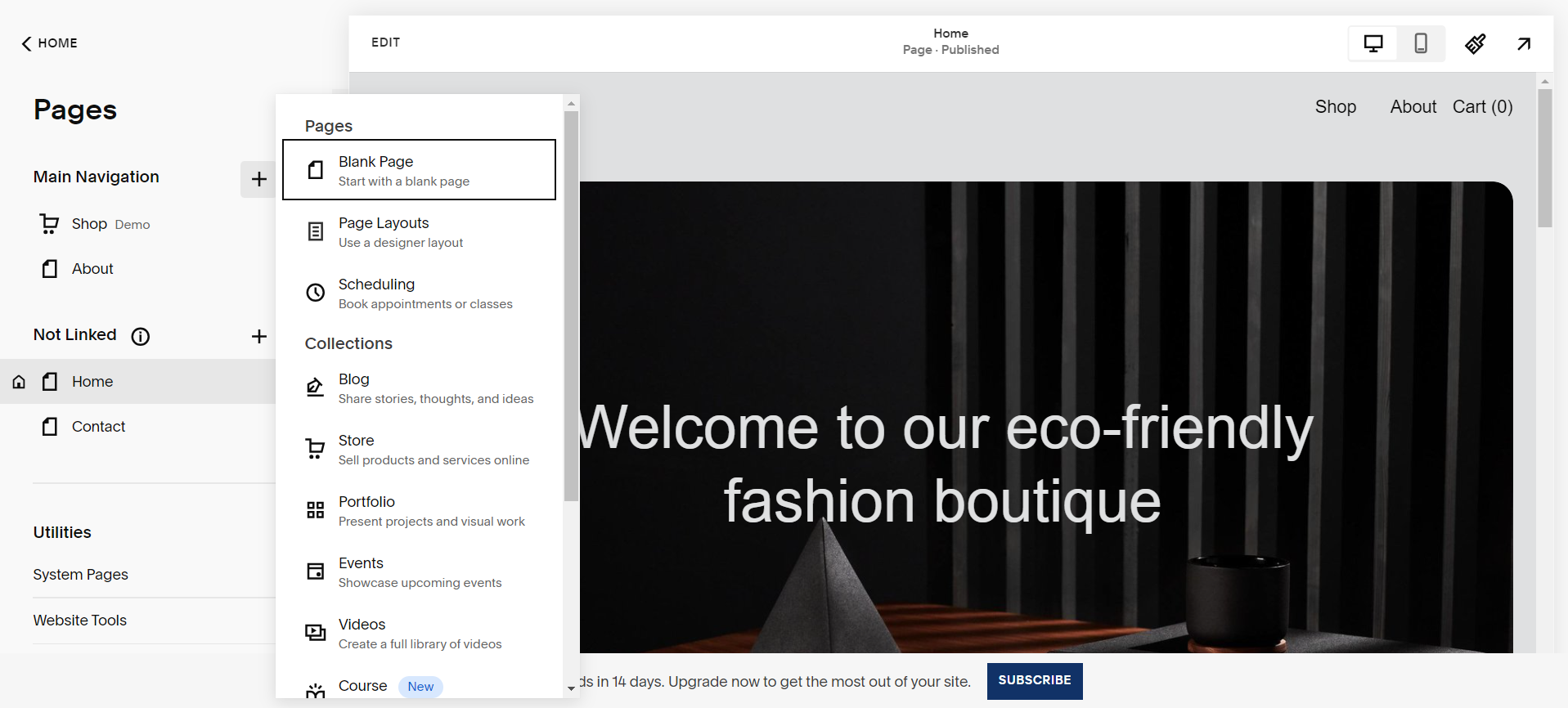
BlueHost’s editor, scoring 7.3, is designed for ease of use, catering to both beginners and advanced users. It offers a section based drag-and-drop interface, allowing users to easily add, remove, and customize elements on their website without needing to code. Users can choose from a wide range of templates and customize them to fit their brand, including adjusting layouts, colors, and fonts. Additionally, the editor provides access to stock photos, SEO tools, and responsive design features, ensuring websites look great on all devices and can rank well on search engines.
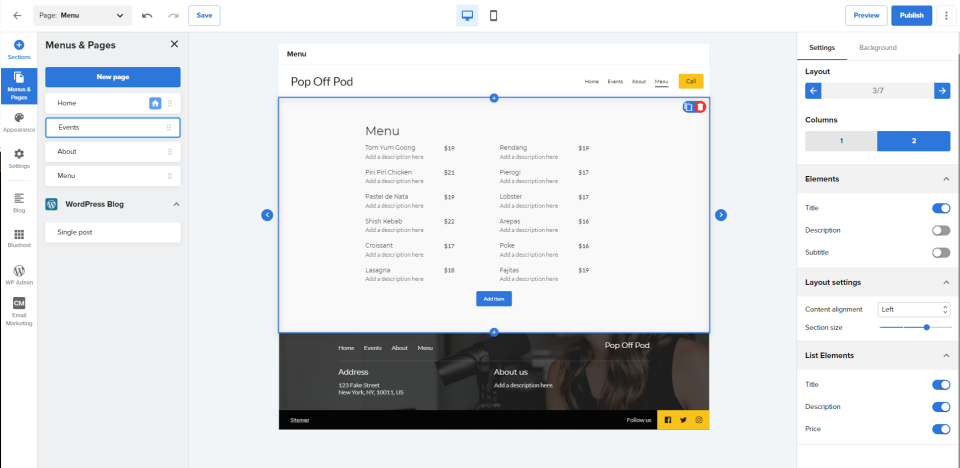
Mobile editor/app
 8.5
8.5
 5.0
5.0

🏆
Winner: Squarespace
. Both Squarespace and BlueHost offer mobile editing capabilities, but they cater to different needs and skill levels. Squarespace has a dedicated mobile app that allows users to manage their website, edit content, view analytics, manage their online store, and schedule social media posts. However, it does not offer the full range of functionalities available on the desktop version.
On the other hand, BlueHost does not have a dedicated mobile app, but users can edit their website on a mobile browser, albeit with some limitations. Given these factors, Squarespace has a higher mobile editor score than BlueHost, making it the winner in this category.
Product testing options
Product Testing OptionsAssesses the options for trying out platform features before commitment.Score Components:
- Trial quality (40%): Extent and usefulness of the trial or free version.
- Feature accessibility (30%): How many features are available to test.
- Trial duration (20%): Length of the trial period.
- Ease of transition (10%): Smoothness of moving from trial to paid plans.
 7.4
7.4
 6.2
6.2
Overall Result
:
Squarespace wins
. Squarespace scores 7.4, while BlueHost scores 6.2 in product testing options. Squarespace offers a 14-day free trial, allowing users to test most of the premium features, except for custom code, premium integrations, and removal of Squarespace branding. On the other hand, BlueHost does not offer a free trial, but it allows users to test premium features within a 30-day refundable period.

|

|
|
|---|---|---|
|
Free Plan |
No | No |
|
Trial Duration |
14 days | No |
|
Testing Premium Features |
Most, except for custom code, premium integrations and removal of Squarespace branding | Possible within 30-day refundable period |
Price
PriceLooks at the cost-effectiveness and value for money of each platform.Score Components:
- Plan value (40%): What each pricing tier offers.
- Transparency and clarity (30%): Clearness of pricing structures.
- Flexibility of plans (20%): Range of options to suit different budgets.
- Hidden costs (10%): Additional expenses not included in the plan.
 8.4
8.4
 7.2
7.2
Squarespace and BlueHost offer a variety of pricing plans to cater to different needs, with BlueHost providing more extensive options.

|

|
|
|---|---|---|
|
$10-$15 |
Personal ($12/month): Build a basic website with limited features for personal use. Access to basic templates, mobile-friendly design, and some social media integrations. Value for price: 6.0 |
No offering at this amount. |
|
$15-$20 |
Business ($16/month): Upgrade features with custom domain, SEO tools, marketing tools like email campaigns, and analytics. Value for price: 7.5 |
Basic ($15.99/month): Made for a simple website or blog, 1 website with 10GB SSD storage, Free CDN, Free Domain 1st year, Managed WordPress Hosting, Free SSL 1st year and Chat Support Value for price: 6.5 |
|
$20-$30 |
Commerce ($26/month): Perfect for online stores with built-in eCommerce functionality (unlimited products), secure checkout, inventory management, and marketing tools. Value for price: 8.5 |
Choice Plus ($27.99/month): Ideal for multiple sites needing storage, security, backups, 3 websites with 40GB SSD storage, Free CDN, Free Domain 1st year, Managed WordPress hosting, Free SSL, Free Domain privacy 1st year, Malware scanning, daily site backups are free for the 1st year with the purchase of a 12 or 36-month package. Otherwise, users are required to pay a one-time fee of $35.88 for backup services. Value for price: 7.5 |
|
$30-$35 |
No offering at this amount. |
Online Store ($32.99/month): Great for all online selling, built-in eCommerce tools, 3 websites with 40GB SSD storage, Free CDN, Free Domain 1st year, Managed WordPress hosting, Free Domain privacy 1st year, Malware Scanning, Exclusive Theme Store, Store Analytics, Unlimited products, Secure Payment options, Bookings & appointments, Shipping labels, product search and filtering, daily site backups are free for the 1st year with the purchase of a 12 or 36-month package. Otherwise, users are required to pay a one-time fee of $35.88 for backup services. Value for price: 8.5 |
|
$35+ |
Advanced Commerce ($40/month): Cater to high-volume stores with advanced eCommerce features like abandoned cart recovery, product subscriptions, gift cards, and real-time shipping quotes. Value for price: 9.0 |
Pro ($39.95/month): Perfect for high traffic, advanced storage, security, 5 websites with 100GB SSD storage, Free CDN, Free Domain 1st year, Managed WordPress hosting, Free SSL, Free Domain privacy 1st year, Malware Scanning, daily site backups are free for the 1st year with the purchase of a 12 or 36-month package. Otherwise, users are required to pay a one-time fee of $35.88 for backup services. Value for Price: 9.0 |
location. As a result in rare cases the prices displayed here can differ from the ones you see on their
websites.
Hosting quality
Hosting
qualityExamines the reliability and performance of the hosting solutions.Score Components:
- Uptime (40%): Consistency and reliability of website availability.
- Speed (30%): Loading times and performance.
- Bandwidth and storage (20%): Sufficiency of resources provided.
- Data centers (10%): Quality and distribution of hosting infrastructure.
 7.6
7.6
 8.0
8.0
🏆
Winner: BlueHost
BlueHost edges out Squarespace with its versatile hosting options, including managed WordPress hosting, and technologies for fast load times. Both platforms offer a 99.9% uptime guarantee and have data centers across the globe. However, BlueHost’s commitment to a broad range of hosting needs gives it a slight advantage.

|

|
|
|---|---|---|
|
Do they offer hosting? |
Yes, included in all of their plans |
Yes, offers a range of hosting options |
|
Data Centers: |
Squarespace’s data centers are strategically scattered across North America, Europe, and Asia |
6 data centers: Orem and Provo, Shanghai, Mumbai and Hong Kong, London |
|
Type of hosting: |
Proprietary cloud-based hosting |
Managed WordPress Hosting |
|
Uptime: |
99.9% |
99.9% |
|
Uptime Guarantee: |
Yes |
Yes, 99.9% |
Website Speed Optimization
Website Speed OptimizationEvaluates optimization of website loading timesScore Components:
- PageSpeed Score (30%): Google’s score indicating performance optimization.
- Loading Time (30%): The average time until a website is fully interactive.
- Mobile Optimization (15%): Optimization effectiveness for mobile devices.
- Resource Optimization (15%): Optimizing images, scripts, and other heavy resources.
- CDN Usage (10%): Use of CDN to enhance speed across geolocations.
 6.7
6.7
 6.5
6.5
🏆 Winner: Squarespace
Both Squarespace and BlueHost prioritize website performance and page speed, with Squarespace focusing on responsive design, image optimization, CDN, code minification, and lazy loading of images, and BlueHost emphasizing CDN and server optimization. However, Squarespace has a slight edge when it comes to website speed optimization.

|

|
|
|---|---|---|
|
Focus |
Responsive design, Image optimization |
CDN, Server Optimization |
|
Performance Tools |
Google Lighthouse, PageSpeed Insights |
Google PageSpeed Insights Integration |
|
Key Strategies |
Responsive design, image optimization, CDN, code minification, lazy loading of images |
CDN, Server Optimization |
|
Load Times |
0.7s to 9.1 s (Average: 2.9s) |
Varies widely, depending on the optimization, website complexity |
|
Page Speed Scores Range |
20/100 to 93/100 (Average: 62.7/100) |
Varies widely, depending on the optimization, website complexity |
|
Core Web Vitals Improvement |
Emphasis on LCP, FID, CLS improvements |
Emphasis on LCP, FID, CLS improvements |
Squarespace has a strong focus on website performance and page speed, integrating tools like Google Lighthouse and PageSpeed Insights to provide a comprehensive view of website performance metrics. Emphasizing responsive design, image optimization, CDN, code minification, and lazy loading of images, Squarespace’s infrastructure includes globally distributed CDNs, improving content delivery. Successfully improving Core Web Vitals (CWV) scores, Squarespace saw a significant increase in sites with good CWV scores. Real-world performance analysis of Squarespace websites showed a wide range of page speed scores from 20/100 to 93/100, averaging 62.7/100, with the Largest Contentful Paint an important metric for website loading, ranged from 0.7 seconds to 9.1 seconds, with an average of 2.9 seconds.
BlueHost, like Squarespace, places a strong emphasis on website performance and page speed. BlueHost’s approach to enhancing site speed includes CDN and server optimization. This approach leverages BlueHost’s fast servers and CDN network to boost load speed. BlueHost also suggests utilizing Google AMP for faster mobile page loads, although with some design compromises. Analysis of BlueHost sites showed a range of speed scores and load times varying widely, depending on the optimization and website complexity. Continuous maintenance and optimization are essential for keeping BlueHost websites fast.
Get a head start on website creation with AI
Create a custom website tailored to your business needs 10X faster with 10Web AI Website Builder!
Plugins and integrations
Plugins and integrationsMeasures the range and effectiveness of additional plugins and integrations.Score Components:
- Variety of options (40%): Range of available add-ons.
- Integration smoothness (30%): Ease of integrating plugins into the site.
- Quality of plugins (20%): Functionality and reliability of the options.
- Custom integration capabilities (10%): Support for custom or third-party integrations.
 6.8
6.8
 9.1
9.1
🏆 Winner: BlueHost.
With a score of 9.1, BlueHost outperforms Squarespace, which scores 6.8. BlueHost’s integration with WordPress gives it access to a vast ecosystem of plugins and extensions, significantly expanding its functionality. Squarespace, on the other hand, lacks an official app store but supports integrations and extensions through custom code injection and third-party tools. While Squarespace offers seamless functionality with over 20 official partner integrations, BlueHost’s access to thousands of WordPress plugins and extensions gives it the upper hand.
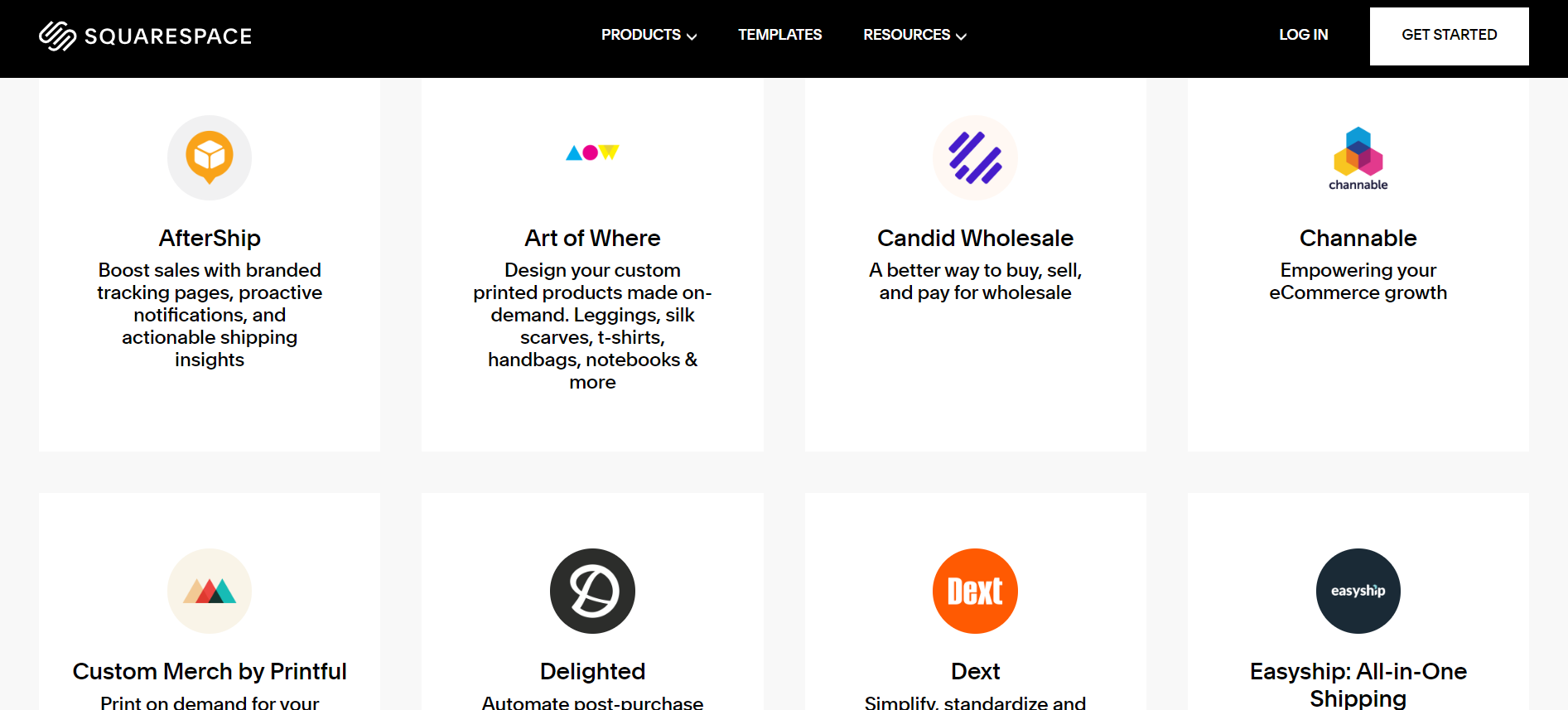
Marketing Features
Marketing featuresAssesses tools and options available for marketing.Score Components:
- SEO tools (40%): Effectiveness of SEO features.
- Marketing automation (30%): Availability and quality of marketing tools.
- Social Media integration (20%): Ease and depth of social media connectivity.
- Email marketing (10%): Quality and usability of email marketing tools.
 8.1
8.1
 7.3
7.3
🏆
Overall Winner: Squarespace
. Squarespace stands out for its more advanced marketing tools, especially in analytics and ad campaign management. BlueHost is strong in email marketing and blogging, ideal for content-driven strategies.

|

|
|
|---|---|---|
|
SEO Tools |
|
|
|
Email Marketing |
|
|
|
Blogging |
|
|
|
Social Media Integration |
Direct linking and selling on social platforms, plus feed displays on-site |
Yes, through WordPress plugins |
|
Analytics and Reporting |
Detailed insights into website performance and visitor behavior |
Yes, integration of Google Analytics and other WordPress plugins |
|
Ads and Promotions |
Integration with Google Ads and tools for managing sophisticated ad campaigns |
Yes, through WordPress plugins |
Customer Support
Customer supportEvaluates the quality and availability of support options.Score Components:
- Response time (40%): Speed of support responses.
- Support quality (30%): Effectiveness and helpfulness of the support.
- Availability (20%): Range of support channels (phone, chat, email).
- Resource richness (10%): Quality of self-help and educational materials.
 7.8
7.8
 7.6
7.6
🏆 Winner: Squarespace
. Squarespace edges out BlueHost in this category with a customer support score of 7.8 compared to BlueHost’s 7.6. Squarespace offers a variety of customer support options, including live chat, email, a community forum, and a comprehensive help center. Live chat and phone support are available on weekdays, while email support, the community forum, and the help center offer 24/7 access. Squarespace also provides language support in several languages across different support channels.
BlueHost also offers a variety of customer support options available 24/7, including chat and phone support for general inquiries. Technical assistance is available seven days a week via phone or by opening a Help Ticket for email support. However, BlueHost does not offer support for enterprises, which gives Squarespace an edge in this category.
Security
SecurityLooks at the platforms’ security measures and data protection.Score Components:
- Data protection (40%): Safeguards for user and customer data.
- SSL and encryption (30%): Implementation of secure connections.
- Compliance (20%): Adherence to industry security standards.
- Regular updates (10%): Frequency of security updates and patches.
 8.8
8.8
 8.3
8.3
🏆
Winner: Squarespace
. Squarespace’s security measures are comprehensive, including secure server storage, encryption, strict access controls, compliance with regulations such as GDPR and CCPA, transparent privacy policies, and additional security measures like vulnerability scanning and malware detection. These measures collectively safeguard your website content and customer information.
BlueHost also prioritizes data protection through SSL certificates, regular backups, and additional security features like SiteLock for malware scanning. Compliance with data protection regulations and a commitment to privacy are central to their service, ensuring users’ data is handled securely. However, Squarespace’s higher security score indicates a more robust security infrastructure.
AI Capabilities
AI capabilitiesMeasures the effectiveness of AI-driven features and tools.Score Components:
- Automation efficiency (40%): Impact of AI on streamlining processes.
- Personalization (30%): AI-driven customization for users or customers.
- AI-Assisted design (20%): Role of AI in website design and functionality.
- Data analysis (10%): Use of AI in interpreting user data and analytics.
 7.5
7.5
 1.5
1.5

|

|
|
|---|---|---|
|
AI Builder |
No fully automated AI builder, but AI-powered features available |
No AI builder available |
|
AI Ecommerce features |
AI-powered copywriting, SEO optimization, product recommendations |
No AI ecommerce features |
|
AI Content Generation |
AI-generated product descriptions, website copy, blog posts, social media captions |
No built-in AI content generation, but possible through WordPress plugins |
|
Additional AI features |
SEO optimization, email marketing insights, inventory management insights |
No built-in AI features |
🏆 Winner: Squarespace
. Squarespace, with a score of 7.5, offers a range of AI-powered features that assist in website creation, content generation, and ecommerce. While it doesn’t have a fully automated AI builder, the available AI capabilities can significantly streamline the website building process and provide valuable assistance.

BlueHost, scoring only 1.5, does not have any built-in AI capabilities. However, its integration with WordPress allows users to add AI features through plugins. Despite this, compared to Squarespace, BlueHost’s AI capabilities are significantly limited.
User Management
User ManagementAssesses the platforms’ capabilities in managing user roles, permissions, and accessibility.Score Components:
- Role Customization (40%): Flexibility in creating and defining user roles and
permissions. - Ease of Management (30%): User interface and tools for managing users.
- Access Control (20%): Effectiveness of access control measures for different user
levels. - Scalability (10%): Ability to manage a growing number of users efficiently.
 7.4
7.4
 4.4
4.4
🏆 Winner: Squarespace
. Squarespace and BlueHost both offer user management features, but Squarespace provides a more detailed and flexible system.
- Squarespace allows varying numbers of users with editing access depending on the plan. The Personal Plan allows one owner, Business and Commerce Plans permit 2 collaborators with different access levels, and the Enterprise Plan offers unlimited users, each with customizable access privileges, from full administrators to restricted contributors.
- BlueHost supports multi-user management, but does not provide specific information about the number of users or their roles and permissions.
Squarespace User Roles and Access Levels:
| Role | Description | Access Highlights |
|---|---|---|
| Owner | The primary user who created the website and has full access. | Full site access, including billing, site settings, content editing, and member management. |
| Administrator | Users granted nearly full access to manage the site alongside the Owner. | Access to most areas except for some owner-specific settings like ownership transfer. |
| Content Editor | Users focused on adding and managing site content without full site access. | Can add, edit, and delete content on pages, blog posts, and manage comments. |
| Billing | Users who manage the subscription and billing details. | Access to billing information and the ability to update subscription details. |
| Store Manager | Users who manage the ecommerce aspects of the site. | Can manage inventory, fulfill orders, manage customers, and view sales analytics. |
| Custom | A role defined by the site owner or administrators with specific access. | Customizable access as defined by the Owner or Administrators, can vary widely between sites. |
Additional Features

|

|
|
|---|---|---|
|
SSL Certificate |
|
|
|
Custom Domain |
|
|
|
Free Custom Domain Included |
|
|
|
International Domains |
|
|
|
Mobile Responsive |
|
|
|
Page Speed |
|
|
|
Website Builder Mobile App |
|
|
|
Convert a Website To An App |
|
|
|
Website Analytics |
|
|
|
Multilingual Sites |
|
|
|
Multiple Users |
|
|
User Feedback
Squarespace is well-liked for its easy-to-use interface and versatile tools, making it ideal for those who aren’t tech-savvy. It offers various features like website creation, SEO, online selling, and more, catering to different users. Customers appreciate its good customer support and visually appealing templates, creating a professional online presence. However, some users find issues with domain transfer/setup, limited customization options, and consider the pricing slightly higher. There are also occasional concerns about customer service and technical limitations like template rigidity and missing features.
Users appreciate Bluehost for its comprehensive free offerings, including SSL, subdomains, and custom email, along with additional services like free domain registration and CDN. The platform’s intuitive interface and user-friendly website builder cater to both beginners and experienced developers. However, concerns arise regarding the significant price increase upon renewal, limited free website templates, and unresolved technical issues with poor customer support, hindering users’ ability to effectively manage their websites and businesses. Addressing these concerns could enhance overall user satisfaction with Bluehost.
The making of this blog
We followed a clear, step-by-step process to write and research this article.
FAQ
Which platform is better for beginners, Squarespace or BlueHost?
Can I use both Squarespace and BlueHost for ecommerce?
How do Squarespace and BlueHost compare in terms of design and customization?
Which platform offers better customer support, Squarespace or BlueHost?
Are Squarespace and BlueHost suitable for creating multilingual websites?
Which platform is more secure, Squarespace or BlueHost?
Can I manage multiple users on both Squarespace and BlueHost?










